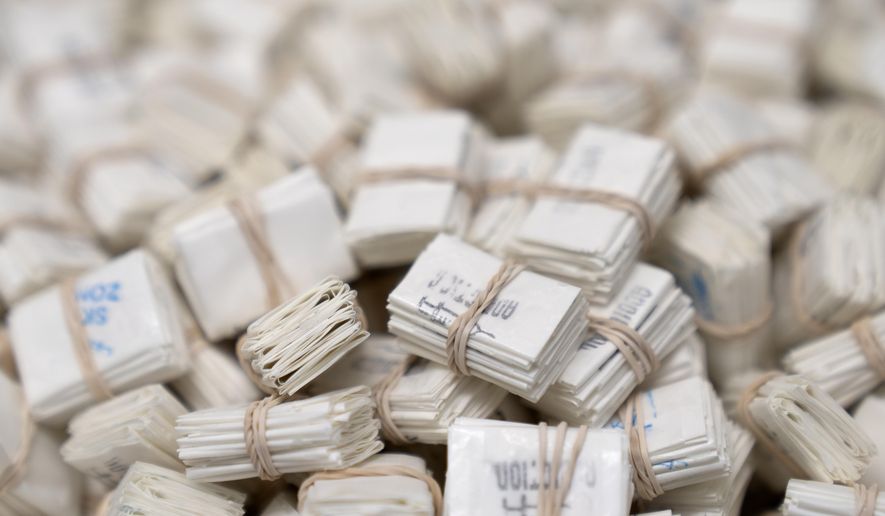The Treasury Department on Wednesday sanctioned two Indian nationals for allegedly using online pharmacies to sell to U.S. consumers fake pills filled with deadly drugs like fentanyl and methamphetamine.
Officials said Sadiq Abbas Habib Sayyed, 39, and Khizar Mohammed Iqbal Shaikh, 34, worked with traffickers based in the U.S. and Dominican Republic and used encrypted messaging platforms to sell the drugs marketed as real pharmaceutical products.
The sanctions are designed to block the property interests and assets of the men within the U.S. and prevent people from doing business with them. Violations of the sanctions can result in criminal and civil penalties.
“Too many families have been torn apart by fentanyl. Today, we are acting to hold accountable those who profit from this poison,” said John K. Hurley, undersecretary of the treasury for terrorism and financial intelligence. “Treasury will continue to advance President Trump’s commitment to Make America Fentanyl Free by targeting drug traffickers.”
Counterfeit pills are a major driver of the drug-overdose crisis that is killing tens of thousands of Americans each year.
Drug cartels in Mexico are pressing fentanyl, a deadly synthetic opioid, into pills and marketing them to unsuspecting American users as Adderall or another pharmaceutical product. The cartels do this to drive profits, given how inexpensive it is to turn precursor chemicals from China and elsewhere into finished fentanyl.
Unsuspecting users in the U.S. buy the drugs online and then overdose. The administration said online sellers in other parts of the world are driving the problem, too.
“Today’s action spotlights the role of illegal online pharmacies, some of which are based in India, that are responsible for supplying counterfeit pills to individuals worldwide, including U.S. consumers,” the Treasury Department said in a news release.
Treasury said it’s also sanctioning KS International Traders, an online pharmacy that Mr. Shaikh allegedly used to sell the drugs.
Even before the sanctions, both men were indicted in September 2024 in the Southern District of New York on allegations of drug trafficking.
Rates of U.S. overdose deaths jumped during the COVID-19 pandemic, though they started to decline noticeably during the latter years of the Biden administration, a trend Democrats attribute to better treatment options and the prevalence of naloxone, an overdose-reversing drug.
The overdose trend line continued to fall in the initial months of this year as Mr. Trump secured the border and imposed stiff penalties on traffickers.
Still, more than 73,000 people died of overdoses in the 12 months ended in April, according to the latest provisional data.
Mr. Trump signed a bill in April that permanently places illicit fentanyl and its chemical cousins on Schedule I, the most restrictive list of drugs in the U.S.
The HALT Fentanyl Act was a long-awaited move to clarify regulations around the synthetic opioid and ensure consistency in drug enforcement.
Experts say permanent scheduling should result in efficient prosecutions and consistent penalties under guidelines from the U.S. Sentencing Commission while sending a signal to China and Mexico that America is serious about tackling the fentanyl problem as it pressures those nations to do more.
• Tom Howell Jr. can be reached at thowell@washingtontimes.com.




Please read our comment policy before commenting.